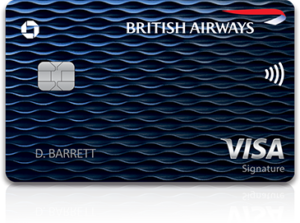What Is Travel Insurance?
Simply put, it is an insurance policy that you buy before your trip begins that can reimburse you for financial losses that occur during your trip whether minor or major.
What Are The Types Of Coverage?
Travel Health Insurance
Travel Health Insurance is coverage for accidents, injuries, and hospital visits while you are away from home. I've had patients who suffered serious accidents while traveling and needed significant medical care. Driving a vehicle or just being a passenger in some countries can be dangerous. I've had friends who were killed when they drove on the wrong side of the road in a foreign country.
Baggage/Property Insurance
Baggage/Property Insurance is coverage for delayed, damaged, lost, and stolen luggage or damage to your gear while traveling. Although transportation companies do their best to get your bags back to you, sometimes they just disappear never to be seen again.
Trip Cancelation/Interruption Insurance
Trip Cancelation/Interruption Insurance is coverage for unexpected interruptions in your travel plans. Travel cancellation coverage covers things related to cancelling your trip before you actually depart on it. Then there’s trip interruption coverage in case you suddenly need to flee the destination due to serious injury, illness, or natural disaster. This can be very valuable if you've taken time off from work or scheduled an expensive vacation. It would be awful to lose the money you paid well in advance for flights, hotels. etc., and not be reimbursed. It can also pay expenses like hotel and taxi costs incurred when your trip is delayed for more than six hours.
Medical Evacuation Insurance
Medical Evacuation Insurance is coverage for transporting you to a major hospital for treatment. Be aware that these plans usually only transport you to the nearest reputable hospital. For that reason I also recommend membership programs like MEDJET that will fly you to any hospital in the world should you require medical evacuation greater than 150 miles from your home. With membership coverage, there are no deductibles, claim forms, or dollar limits.
I would consider buying additional evacuation insurance if you frequently travel abroad, take lengthy trips abroad, have poor health or pre-existing medical issues, or if you're like me and you don't want to worry about how you're getting home in an emergency.
Should You Buy Travel Insurance?
I’ve met plenty of people who travel without travel insurance. I personally have some form of short term coverage for any trip. But if you are a frequent traveler, whether for business or leisure, you should definitely get an annual travel insurance policy. The great thing about getting an annual policy is that you don’t have to worry about insurance on a per trip basis, and you save money over buying multiple short term policies. Just one claim in a given year could cover the cost of the insurance, especially if it was for a major medical emergency. I plan to buy a yearly policy this year as well as a MEDJET subscription for my family.
One of the most valuable and often overlooked benefits of travel insurance is having someone who coordinates the effort to get you help. Having someone who can do this for you in the middle of a crisis is invaluable. Whether arranging medical care, helping replace travel documents, or obtaining emergency cash, they will be there to help you.
Any Other Tips?
1. Know what coverage you already have.Health care policies, home owner’s policies and credit cards often cover you things like basic medical care, lost baggage, car rentals and loss of personal property. Talk to your current insurance providers. You need to know what coverage you currently have. Ask if they provide coverage internationally. If they do, you might not need anything else. Your homeowners or renters insurance may cover your belongings when you’re traveling in foreign countries too. Premium credit cards like the Chase Sapphire Reserve and American Express Platinum include trip delay, trip cancellation, and emergency medical coverage when you book using your card. They may even cover evacuation. Always check with them and your personal insurance provider to find out the extent of your coverage.
2) Your destination matters!
Standard travel insurance policies typically won’t cover travel to countries that are considered high risk, including places considered war zones, disaster relief areas, and any country that your home country’s department of consular affairs office advises against traveling to. You usually can purchase special high risk travel insurance for instances like this. Be sure to include all countries you plan to visit when requesting a quote and comparing travel insurance policies. You don’t want to end up with a policy that isn’t valid in a destination you’re visiting.
3). Don’t buy travel insurance from your airline or tour operator.
I don't recommend you buy the travel insurance directly from an airline in case they go out of business and you're stuck holing a worthless ticket. I don't recommend buying directly from the cruise line because it usually only covers you while on the cruise and not while traveling to and from the cruise ship. If you booked through a travel advisor, they will offer good options for you in addition to any coverage from using a premium credit card.
4) You will have to pay up front and be reimbursed later. Foreign hospitals, clinics, and doctors are not going to take insurance assignment. Keep all your receipts. If you have been robbed, most policies require you to file a police report to get reimbursed. You'll probably need a proof of purchase as well. Hazardous activities are excluded by some policies including skydiving, hang gliding, and base jumping to name a few. Some even exclude scuba diving or mountain biking. If you plan on doing these activities, make sure your policy covers them or buy one that does.



